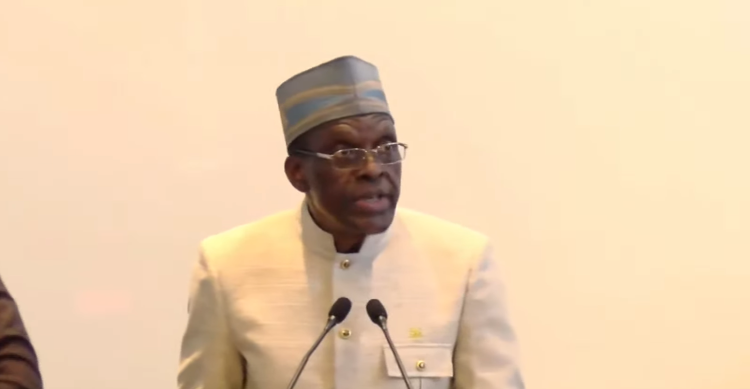Speaker of Parliament, Alban Bagbin, has clarified that he does not have the authority to assign seating positions to Members of Parliament (MPs), amid ongoing disputes between the National Democratic Congress (NDC) and the New Patriotic Party (NPP) over the majority in Parliament.

The controversy arose following Bagbin’s recent declaration of four parliamentary seats as vacant, which shifted the balance of power in favor of the opposition NDC.
This decision has led to a heated debate over which party holds the majority in the House.
Both the NDC and NPP are now vying for the majority designation, which has significant implications for parliamentary leadership and decision-making.
On Wednesday, November 6, Minority Chief Whip, Governs Kwame Agbodza, stated that the NDC caucus would arrive in Parliament the following day intending to occupy the majority seating area.
This statement reflects the NDC’s position in light of the Speaker’s ruling on the vacant seats.
However, Bagbin, speaking to the media on the same day, emphasized that the Speaker’s role does not extend to determining where MPs sit.
He clarified that seating arrangements are a matter for MPs and their respective leadership to resolve, reaffirming that his primary responsibility is to maintain order, uphold parliamentary procedures, and ensure the smooth operation of the House, irrespective of political tensions.
“It is not part of the duties of a speaker to decide where an MP should be in parliament. That determination in Ghana’s constitution doesn’t exist. In various parliaments, these things we are talking about; majority and minority don’t exist any longer. That is why in my ruling, I used the term old school, which is the British model; the government and opposition.
“…You can sit anywhere, but the numbers determine who is the majority and who is the minority. In our parliament, the practice is for those who constitute the majority to sit on the right side of the speaker and those who constitute the minority to sit on the left side of the speaker.
“That is because, after independence in 1957, we adopted the Westminster system, which is practised in the United Kingdom. But we changed that even to the extent that the arrangement on the floor of the house is in a horseshoe.
So, it is not always the case that the people to the left side are all members of a minority, that is not the case now and there is good reason,” he stated.
























































![[FREE FREE MONEY] Predict and Win a Guaranteed GH¢200 From Us EVERY WEEK](https://wordpress.ghanatalksradio.com/wp-content/uploads/2022/02/Predict-and-Win-Final-09-03-2021-218x150.jpg)
![[Predict & Win – 8th/Oct.] WIN A Guaranteed ¢200 From Us This Week](https://wordpress.ghanatalksradio.com/wp-content/uploads/2021/10/maxresdefault-16-218x150.jpg)
![[Predict & Win – 2nd] WIN A Guaranteed ¢200 From Us This Week](https://wordpress.ghanatalksradio.com/wp-content/uploads/2021/09/maxresdefault-50-218x150.jpg)
![[Predict & Win – 25th] WIN A Guaranteed ¢200 From Us This Week](https://wordpress.ghanatalksradio.com/wp-content/uploads/2021/09/maxresdefault-36-218x150.jpg)
![[Predict & Win – 18th] WIN A Guaranteed ¢200 From Us This Week](https://wordpress.ghanatalksradio.com/wp-content/uploads/2021/09/maxresdefault-23-218x150.jpg)







![[National cathedral] See full list of churches that have contributed since 2018](https://wordpress.ghanatalksradio.com/wp-content/uploads/2020/09/Ghana-National-Cathedral-GhanaTalksRadio-100x70.jpg)
![[Election 2024] Independent presidential candidate says he is the best president Ghana needs](https://wordpress.ghanatalksradio.com/wp-content/uploads/2023/11/Alan-100x70.jpg)


